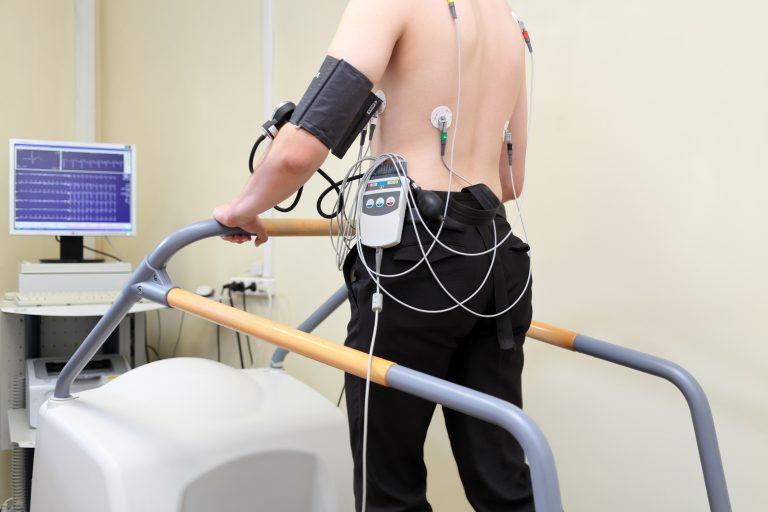Treadmill Stress Test Near Me

Treadmill Stress Test Near Me
When it comes to monitoring heart health, one diagnostic tool stands out for its accuracy and practicality — the treadmill stress test. If you’ve ever searched for a reliable treadmill stress test near me, you’re likely looking for a safe, non-invasive way to evaluate how well your heart functions under physical stress. This test is often recommended by cardiologists to detect underlying heart problems, monitor treatment progress, or assess risks in individuals with a family history of heart disease.
What is a Treadmill Stress Test?
A treadmill stress test, also known as an exercise stress test, is a diagnostic procedure that records how your heart performs during physical exertion. Unlike a resting ECG, which only shows heart activity when you’re still, this test pushes your cardiovascular system to work harder. By doing so, doctors can identify potential issues that might not show up when your body is at rest.
Why Do Doctors Recommend It?
Doctors may suggest this test for several reasons, including:
-
Identifying blockages in the coronary arteries.
-
Evaluating chest pain or shortness of breath.
-
Measuring exercise tolerance for patients with heart conditions.
-
Determining safe levels of physical activity for older adults.
-
Monitoring how well prescribed heart medications are working.
How the Test Works
Step 1: Preparation
Before the test begins, small electrode patches are placed on your chest to monitor your heart’s electrical activity. Your blood pressure and heart rate are also recorded as baseline readings.
Step 2: Walking on the Treadmill
You start by walking at a slow, steady pace. Gradually, the treadmill speed and incline increase to make your heart work harder.
Step 3: Continuous Monitoring
Throughout the test, your ECG, heart rate, blood pressure, and breathing are monitored closely. If you feel dizziness, extreme fatigue, or chest discomfort, the test may be stopped immediately.
Step 4: Cool-Down Phase
Once the test ends, your heart activity continues to be observed until it returns to normal.
Benefits of a Treadmill Stress Test
-
Non-Invasive: No surgical procedures or injections required.
-
Early Detection: Helps identify risks before they turn into severe conditions.
-
Custom Assessment: Provides individualized data about your cardiovascular endurance.
-
Quick Results: The entire procedure typically takes less than an hour.
Who Should Consider This Test?
Not everyone needs a treadmill stress test, but it’s particularly beneficial if you:
-
Experience unexplained chest pain or palpitations.
-
Have a family history of heart disease.
-
Are recovering from a heart attack or cardiac surgery.
-
Lead a sedentary lifestyle and are planning to start a rigorous exercise program.
-
Need a fitness clearance for high-intensity sports or jobs.
Risks and Safety Measures
Although treadmill stress tests are generally safe, there are minor risks like irregular heart rhythms, fainting, or in very rare cases, heart attack. To minimize these risks, trained medical professionals supervise the procedure in a controlled environment equipped with emergency equipment.
How to Prepare for the Test
-
Avoid caffeine and nicotine for at least 3 hours before the test.
-
Do not eat a heavy meal before the appointment.
-
Wear comfortable clothing and shoes suitable for exercise.
-
Inform your doctor about all medications you are currently taking. Some may need to be paused before the test.
Alternatives to a Treadmill Stress Test
While this test is very effective, doctors may recommend alternatives based on your health condition, such as:
-
Nuclear stress test (uses a radioactive tracer).
-
Stress echocardiogram (uses ultrasound imaging).
-
Pharmacologic stress test (uses medication to simulate exercise effects).
Final Thoughts
Your heart is your body’s most vital organ, and monitoring its health is essential for a long, active life. Whether you’re experiencing symptoms or simply want peace of mind, undergoing a treadmill stress test is a reliable step toward better cardiovascular care. If you’ve been wondering where to find a treadmill stress test near me, taking action now can make all the difference for your long-term well-being.
Frequently Asked Questions (FAQs)
1. What does a treadmill stress test measure?
It measures your heart rate, blood pressure, breathing, and ECG while you exercise to evaluate how your heart responds to physical stress.
2. How long does the test take?
The entire process usually takes 30 to 45 minutes, including preparation, the test itself, and the recovery period.
3. Can I eat before the test?
It’s best to avoid heavy meals, caffeine, and nicotine at least 3 hours prior, but light meals may be permitted depending on your doctor’s instructions.
4. Is it painful?
No, the test is not painful. You may feel tired or slightly uncomfortable while exercising, but that’s expected as part of the evaluation.
5. Who is not suitable for this test?
Patients with severe heart conditions, uncontrolled high blood pressure, or mobility issues may not be candidates for treadmill-based testing.
6. Do I need to stop medications before the test?
Some medications that affect heart rate or blood pressure may need to be paused, but only under a doctor’s guidance.
7. What happens if abnormal results are found?
Your doctor may order additional tests like an echocardiogram, coronary angiogram, or nuclear imaging for a clearer diagnosis.
8. Can children undergo this test?
In rare cases, children with suspected congenital or acquired heart conditions may undergo a modified version under pediatric supervision.
9. How accurate is the test?
It’s highly effective in detecting coronary artery disease, but sometimes follow-up tests are needed for confirmation.
10. How often should someone take the test?
There’s no fixed schedule. Frequency depends on your medical history, symptoms, and your doctor’s recommendation.
- Art
- Causes
- Crafts
- Dance
- Drinks
- Film
- Fitness
- Food
- Giochi
- Gardening
- Health
- Home
- Literature
- Music
- Networking
- Altre informazioni
- Party
- Religion
- Shopping
- Sports
- Theater
- Wellness



